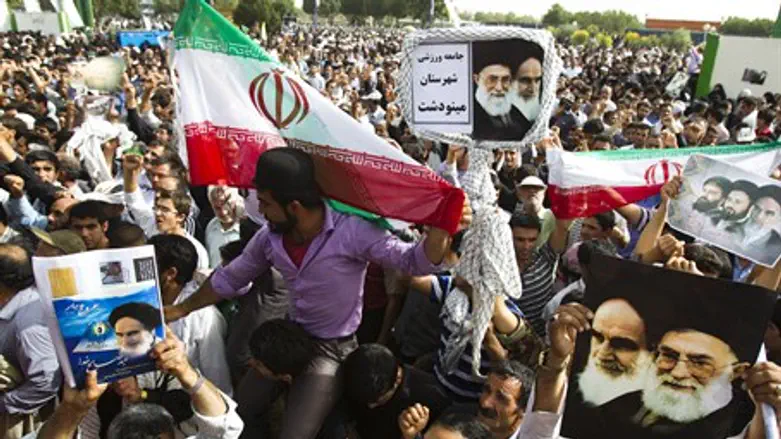
British Foreign Minister Philip Hammond is to reopen the UK embassy in Tehran on Sunday, but according to Iranian Deputy Foreign Minister Majid Takht Ravanchi, the rapprochement is to be very limited in terms - and it comes amid heavy protest in Iran.
Takht Ravanchi told the semi-official Fars News Agency on Saturday that the thawing of ties following the nuclear deal last month will not include ambassadors being exchanged between the two countries.
"We are not considering to send Iran's ambassador to Britain and the embassies in both countries will continue operating under charges d'affaires," said the Iranian diplomat.
Hammond previously claimed that an exchange of ambassadors is being aimed for in the coming months, but the Iranian deputy foreign minister's comments would seem to indicate Iran is not in any hurry to do so.
Speaking about the ceremony on Sunday with Hammond reopening the embassy in Tehran, he noted, "Iranian Deputy Foreign Minister Mehdi Danesh Yazdi will also attend the reopening ceremony of Iran's embassy in London."
According to Takht Ravanchi, the first phase of renewed ties with the UK will see the embassies issue diplomatic visas only, and only in a later phase will the embassies issue tourist visas.
The British Embassy in Iran was closed in 2011 after it was stormed by Iranian students protesting against Western sanctions over Iran's nuclear program. Britain said the storming could not have happened without the tacit consent of the Iranian regime, given the presence of Basij paramilitary force members whose group is under the auspices of the Iranian Revolutionary Guard.
"Reopening the embassy is counterrevolutionary"
Not everyone in Iran is enthused about the reopening of the British embassy in Tehran, however.
Fars reported Saturday that a number of Iranian university student groups as well as politicians slammed the move as "irrational."
One student group, the Office for Consolidating Unity, said in a statement that "the British embassy's record shows nothing but support for spying operations, organization of street unrests (sic) and assassination of Iranian scientists."
"Reopening the British embassy in Iran would be a counterrevolutionary, illegal and irrational move," chimed in Hossein Shahbazi, Secretary of the University Students Justice-Seeking Movement.
"The parliament's ratified law says that the British Embassy should not be reopened unless Britain changes its behavior," he added.
European officials have been quick to visit Tehran since July 14, when Iran struck a deal with Britain, China, France, Germany, Russia and the United States, ending a 13-year stand-off over its controversial nuclear program.
Over the past few weeks, officials from Italy, France, Germany and Serbia have visited Iran. After the deal was signed, EU foreign affairs chief Federica Mogherini announced that she would visit Iran as well.
Hammond's visit is the first by a British foreign secretary since 2003.
